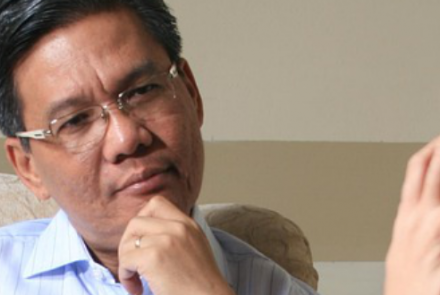Mixing Mental health and Sexuality
In preparation for this article, I asked a number of members of TFT some questions about their mental health. I chose people who experience both same-sex attractions and had at least one mental health diagnosis. My questions explore how their mental health condition interacted with their same-sex feelings. Each person picked from my questions which ones they wanted to answer. My intention was particularly to share experiences with others, so that others who have similar blends of sexual temptations with mental health struggles might benefit from the experience and wisdom of others. The responses below are simply the experiences of these five people.
What impact does your mental health condition have on your same-sex attractions?
Vanessa: “I experience anxiety, OCD and depression. When these are strong, I may have more temptations to seek comfort.”
Joe: “I suffer from depression. The temptation to sin is stronger when I feel depressed because I feel more lonely and sad. My depression is really episodic and normally very short (2 weeks - to a month), and once I get out of an episode, I look like a perfectly normal, happy and social person. I was diagnosed with depression in 2014 and I have had only 4 episodes so far: the 3 relapses happened when I was not on antidepressants. But for some people, it's more long-term.”
Jade: “I struggle with anorexia, as well as anxiety disorder. It makes me think about previous relationships more and how life was easier with someone else there. I then begin to crave and miss those relationships and connections more.”
Sue: “My diagnosis is Borderline Personality Disorder with Post Traumatic Stress Disorder. When my mental health is more of a struggle my same-sex thoughts increase greatly. This in turn will increase my need for comfort and the increased same-sex temptations heighten my inner struggle that a same-sex relationship is where my comfort will be found, instead of looking to God for my comfort.”
Mark: “My bipolar condition can rock my faith, as it can play tricks on my mind. I keep praying it will go back to normal. If it wasn’t for my mum, I feel that I would be lost. Jesus is Lord and somehow still has a grip on me in these end times.”
What effect do your same-sex attractions have on your overall mental health?
Joe: “I feel an intense inner conflict. I feel more ashamed and wonder if this struggle will be this painful through my whole life. Same-sex attraction basically depresses me.”
Jade: “Not a huge impact on my mental health. I'm able to speak about these struggles with friends who help remind me of the truth. But it does leave me doubting my beliefs and whether I'm doing the right thing.”
Sue: “The overall effect of increased same-sex attractions eventually results in feelings of guilt and failure, both of which in the long term have a negative impact on my mental health and my self-esteem and increase my inner mental conflict regarding my identity.”
Mark: “My bipolar condition is complicated by addictive behaviours such as alcohol and nicotine, gambling and sexual addiction. I watch too much TV and, if I’m honest, I feel it’s the enemy trying to distract me from the faith.”
How does any medication you take affect your same-sex attractions?
Joe: “Yes, I take 10mg of Escitalopram every day. I think, generally speaking, the drugs have a positive effect on me. I am one of those people who respond really well to medicines (I know some people don't), and the medication keeps my emotions and cognition above baseline levels. This means that when I feel the urge to sin, or when I feel sad because of this sin, I have a certain level of psychological flexibility to shift my attention away from this struggle and just carry on with life. It would be harder for me to do this if I were not on medication. In my support group, I found that those who refused to take medication or had low medication compliance generally had a poor prognosis. I would encourage them to take medication as prescribed. I know this even more clearly after I started studying mental health, because mental illness does have a biological cause (even though it may not be the main one).”
Sue: “Depending on which medication I’m on, and the dosage, sexual feelings can sometimes be suppressed. In this case, my same-sex feelings will be much less or will not be an issue.”
What strategies do you find helpful in managing both your mental health and your same-sex feelings?
Vanessa: “I benefit from accountability. Also, my own prayers and the prayers of others.”
Joe: “These are the tools that help me: antidepressant medication, exercise and keeping in touch with my family, friends and brothers and sisters in the church. Counselling also helps. Another thing, and this is the most effective coping mechanism for me, is work. During a recent semester, I was very busy studying, volunteering and looking for a part-time job, so there was very little time for me to dwell on my same-sex feelings.”
Jade: "I have found that vulnerability and honesty with others really helps me: being open about my struggles and having others pray helps to ground me biblically and keeps me in the truth. Also, distraction techniques and keeping busy help me.”
Sue: “Not keeping my feelings to myself is helpful. Also, seeking out a trusted Christian friend to talk and pray with: I have had an accountability partner in the past who was invaluable, with regards to keeping me on track and helping me through the most intense parts of my struggle.”
How can we best support those facing a combination of mental health struggles and same-sex attractions?
Joe: "I had a similar support group of Christians who experienced same-sex attractions in China. Among the big group, there were 6 members who met regularly, and half of them had some kind of mental disorder and were on medications. As well as encouraging them to take any prescribed medication, I would also just be there for them when they needed someone to talk to. Sometimes I had to be extremely patient. It can be frustrating to talk to depressed people, as you can get sucked into their negativity and feel as helpless as them. When I talked to one member of the support group, it could feel hopeless, because it felt like there was nothing I could do to improve his situation. At these times, I would tell myself that at least I am also suffering with him and that's going to make him feel better."
Afterword
I hope that the reflections shared above are an encouragement to you. However, these responses do not constitute expert mental health advice. Rather, they are shared in good faith for the encouragement of the reader. If you have a mental health condition, please pursue professional advice that is tailored to you.
This article was originally published in the Spring 2024 edition of the TFT magazine, Ascend. Click the button below to download your copy.
Download the Spring 2024 edition of Ascend






